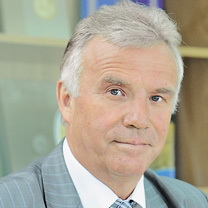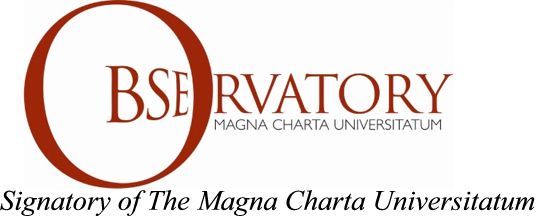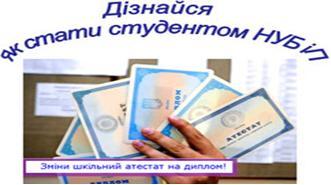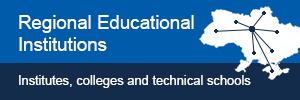Governmental Courier Newspaper. Stanislav Nikolayenko: The Japanese Government Provides Financial Support of Ukraine Considering the Needs of Our University
 Recently it was reported that the Japanese government would give Ukraine a non-project grant for purchase of special equipment for medical and research institutions working on overcoming the consequences of the Chernobyl disaster. The agreement between the two governments has already been signed.
Recently it was reported that the Japanese government would give Ukraine a non-project grant for purchase of special equipment for medical and research institutions working on overcoming the consequences of the Chernobyl disaster. The agreement between the two governments has already been signed.
The money (350 million yen or 3.2 million dollars) is planned to be spent on purchase of special medical and radiological equipment for the National University of Life and Environmental Sciences (NULES) of Ukraine, National Scientific Centre for Radiation Medicine, as well as five regional hospitals - in Zhytomyr, Lutsk, Kyiv, Rivne and Chernihiv.
Why was NULES of Ukraine included into this list? This and much more was discussed in the conversation with the Acting Head of the University, Professor Stanislav Nikolayenko.
- Stanislav Mykolayowych, the list of recipients of the aid is short. Why is the aid allocated to your university, the only one of the country's universities?
- This agreement depicts the good will of the Japanese people and recognition of the role played by Ukrainian scientists in the aftermath of the disaster at Fukushima Nuclear Power Plant. Three years ago, Japan experienced a tragedy similar to Chernobyl. More than 60 groups of Japanese researchers who worked on this problem came to Ukraine to learn from their Ukrainian counterparts.
One of the places they attended was the Ukrainian Research Institute of Agricultural Radiology of NULES of Ukraine, which is involved in radiological control after the Chernobyl disaster. The scientists of the Institute helped to reduce population exposure to radiation by half!
After the explosion at the Chernobyl Nuclear Power Plant scientists were responsible for determining the level of contamination of land and food, decision what to do with meat, milk, grain and other agricultural products produced in contaminated areas. The method of determining the level of contamination was developed and the scientists conducted research to identify the doses of population exposure to radiation.
Afterwards, the employees of the Institute proved the need to include measurements of radioactive contamination of milk and potato into methodology of settlement certification. By the way, it is still used at the National Research Centre for Radiation Medicine for calculation of internal doses of population exposure.
Our scientists are actively cooperating with foreign counterparts, in particular, from one of the largest research centres in France - Institute of Nuclear Safety and Radiation Protection. There are 2 subdivisions of NULES of Ukraine in the Chernobyl zone, where experts from different countries conduct scientific experiments, including projects of IAEA and NATO.
And that's not all. So the Japanese colleagues rightly applied to the Ukrainian Research Institute of Agricultural Radiology. All scientific achievements of Ukrainian scientists are used in the area of the accident at the Fukushima nuclear power plant. Scientists of the Institute, for instance, its talented Head, Valeriy Kashparov, often visit Japan for consultation. And the Head of the Laboratory of Radiation Monitoring and Dosimetry, Vasyl Yoschenko, and researcher, Olena Parenyuk, are currently in Japan as research professors of Fukushima University.
Therefore, this grant is an expression of gratitude of the Japanese society for help and readiness for cooperation. The funds will be spent on purchase of diagnostic ultrasound systems, autoclaves of various capacities, infrared thermographs, meteosystems, incubators, dryers, chromatographs, refrigerating centrifuges etc.

Japanese and Ukrainian scientists in the area of the Fukushima Nuclear Power Plant
Photo (left to right): Yushi Onda, Valeriy Kashparov, Sergiy Fesenko, Vasyl Yoschenko
This equipment will bring many benefits. Meteorological data obtained using weather stations will be used to support field experiments on absorption of radionuclides by crops in different regions of the country. The use of other devices will allow in-depth research in molecular biology, biochemistry, food testing, diagnosis of genetic mutations of cattle and will contribute to establishing production of bio-fertilizers and bio-pesticides for agriculture. In addition to purely scientific benefits, this equipment will improve the quality of practical training of the students.
By the way, this is not the first time the Japanese party considers the needs of our university, providing financial aid to Ukraine. For example, the works on insulation of the buildings and dormitories of the university are done with the help of funds allocated to NULES of Ukraine in the framework of the Kyoto Protocol. We have 17 buildings and 13 dormitories. So it is easy to calculate how important it is under current conditions.
- Everything that you told concerns the radiation safety of the country. But currently there continues the war in eastern Ukraine. NULES of Ukraine has one of the best military departments in the country…
- I see. Now, amid barrage and fighting that take place in Donetsk and Luhansk regions, it is frightening to think that one of the best military departments in the country – the military department of the National University of Life and Environmental Sciences of Ukraine – could have been disbanded! I remember when I was the Minister of Education and Science of Ukraine I spent a lot of efforts to preserve the military departments.
Today, the graduates of the department are junior reserve officers who fight for Ukraine in army units and units of the National Guard. And the officer-teachers of the department protect important state objects.
A few days ago more than 450 students, future reserve officers from NULES of Ukraine, Nizhyn Agrotechnical Institute, Bilotserkivskyi National Agrarian University and Uman National University of Gardening underwent practical training at one of the largest training centers of the former Soviet Union – “Desna”. They obtained ranks of military commanders of mechanized, tank and car platoons, deputy commanders for armaments, engineers for special electrical equipment, officers of veterinary service.
By the way, the officers who do service at “Desna” say that it was almost disbanded. Most hangars with military equipment were empty and useless. Fortunately, it did not happen. As the time shows – Ukraine needs an efficient army.
Military capability is defined not only by weapons, but also by the spirit of the soldiers. Some of our students took a break in their education in order to enroll as volunteers to the National Guard, and now are fighting in the area of the ATO. Dear students, please come back alive!
- Because of the war in eastern Ukraine we forgot a little about the fire in the administrative building of the university, which took place last autumn. And exactly this building is the face of the University. How is renovation going?
- Repair works in Building 3 continue. But we cannot hope for governmental support when there is a war in the country. We try to find benefactors. I must say that a lot of university graduates responded to our request for help, among them those who represent Taras Shevchenko Kolos Company, Kaniv Forestry State Enterprise, MATIMEKS-Ukraine JSC, Yuvito Consulting Group LLC, Kypyachka-Agro Company, BIOTESTLAB Company, Kiev Agroindustrial Company, Kyyivsilelektro JSC, Ukrzoovetprompostach Company and others. The staff of the university also was eager to help.
Renovation could have been more active if the building had not been included into the list of UNESCO heritage. And still, despite the financial problems, we plan to restore the roof and install all the windows until autumn.
All in all, the life at the University continues. This summer, nearly twenty thousand students have applied for admission, so we have an introductory competition ten people for a place. And I want to stress that almost 60 percent of currently enrolled freshmen, most of them are from rural areas, will be funded by the state.
Interview was conducted by Valentin Obrambalskyy,
Governmental Courier Newspaper №141 on August 6, 2014
- Governmental Courier Newspaper.pdf (pdf, 125.58 KB)









